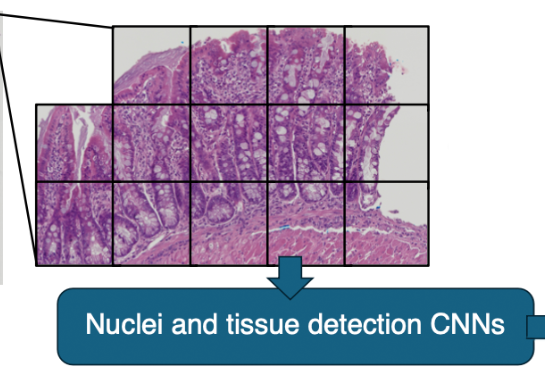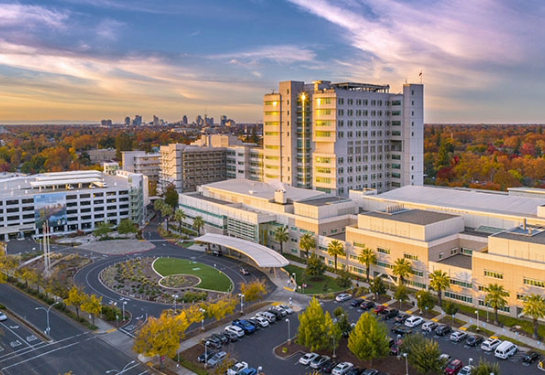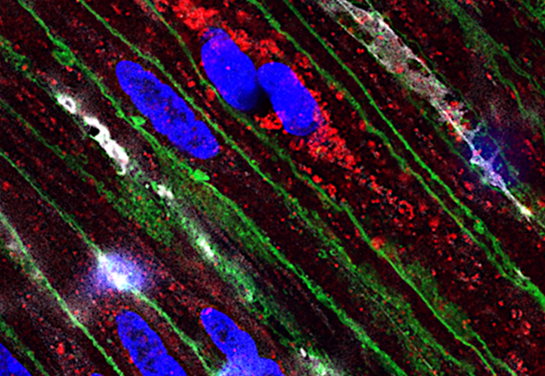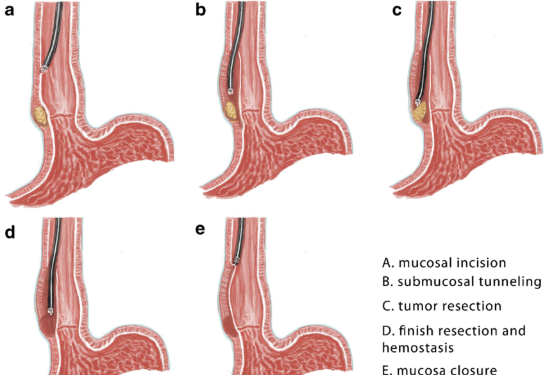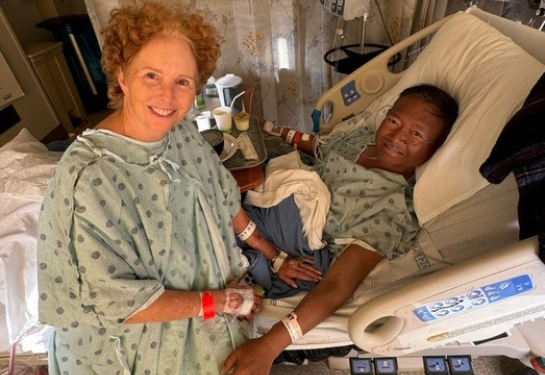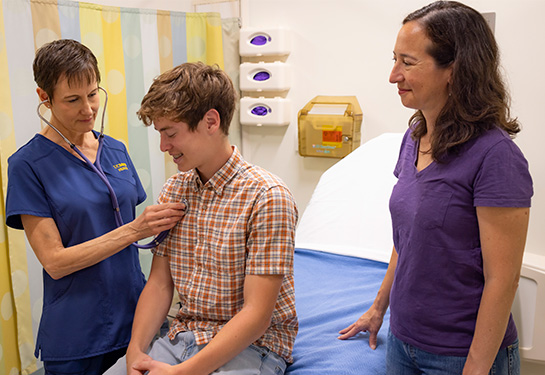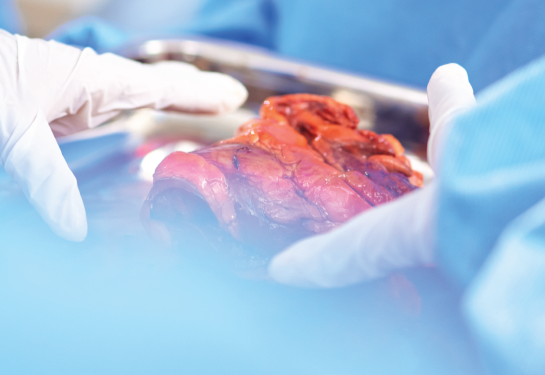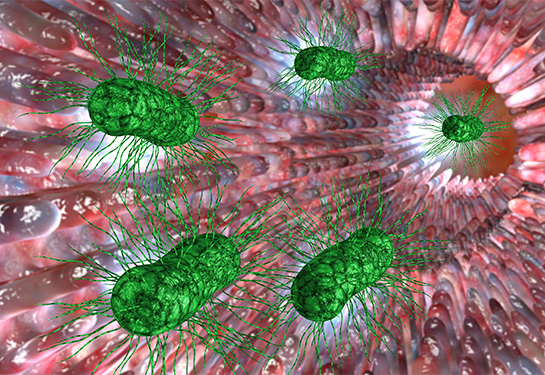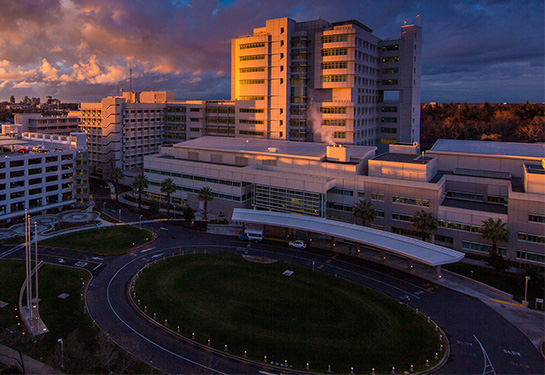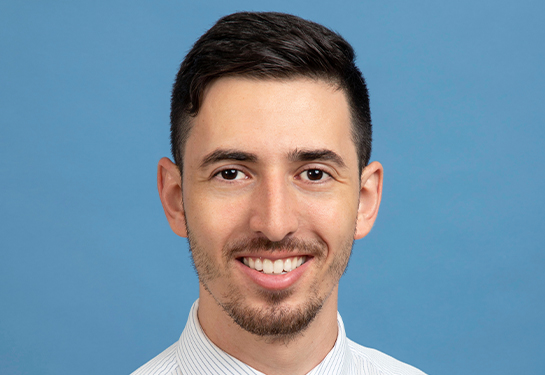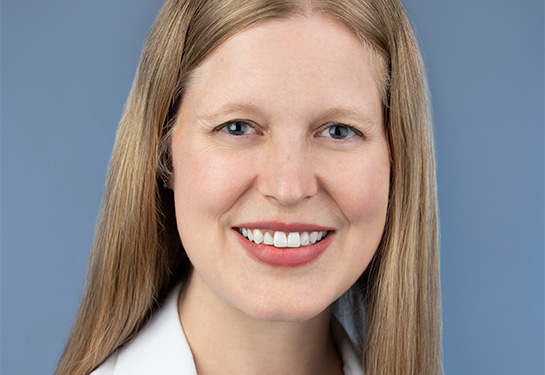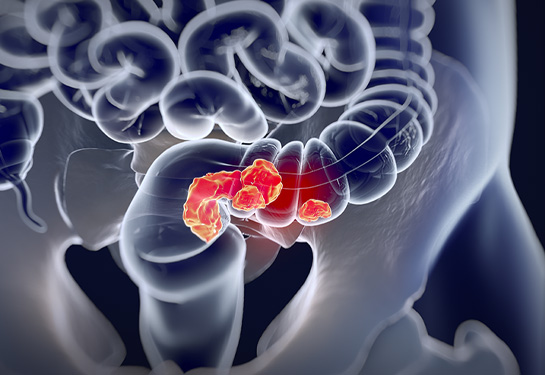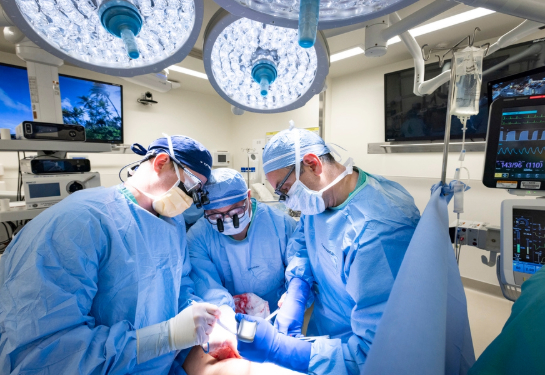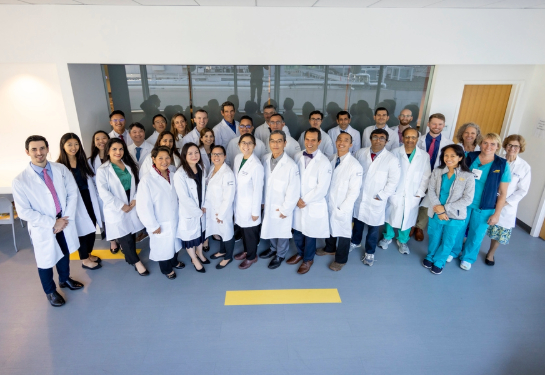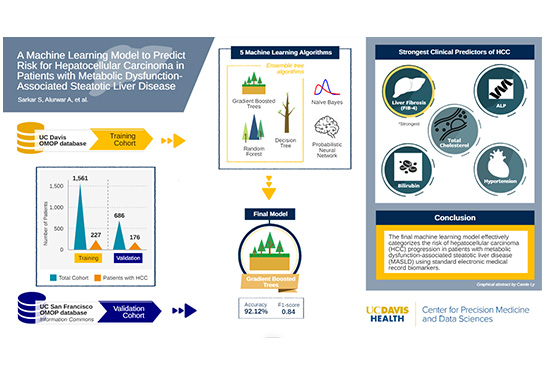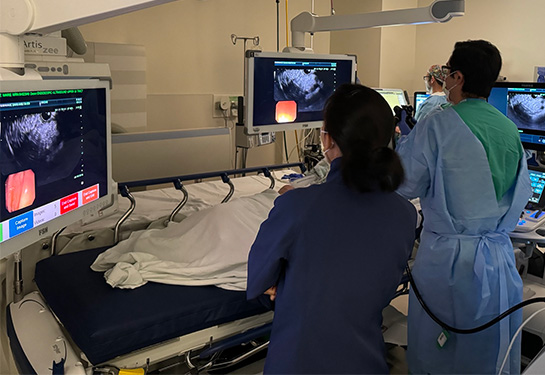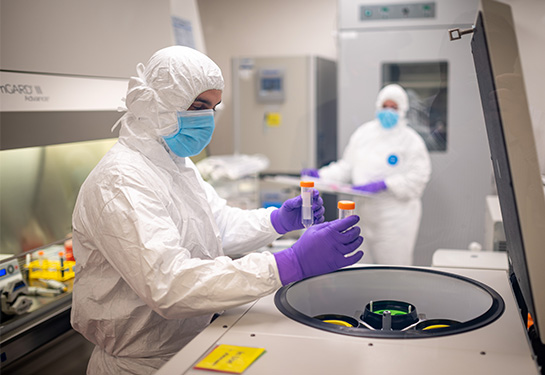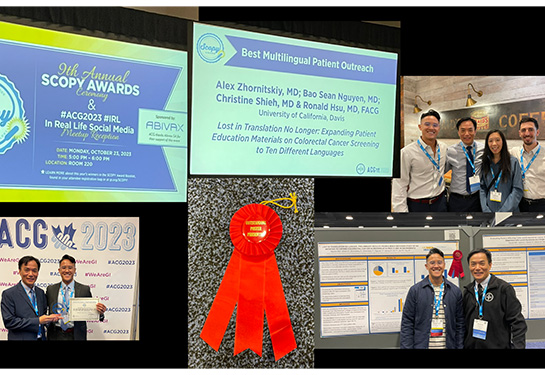-
December 23, 2025
New trial at UC Davis Health shows promising results for rare liver disease
A new monoclonal antibody for a rare liver disease, primary sclerosing cholangitis, showed promising efficacy in a recent multicenter study led by UC Davis Health.
Read More
-
November 14, 2025
The gift of life: A father and son's transplant journey
Andy Wright received a life-saving liver transplant from his son Nick, marking the Transplant Center’s first-ever living donor liver transplant procedure.
Read More -
November 13, 2025
GLP-1 and health: Beyond weight loss in the Ozempic era
GLP-1 drugs influence more than the gut and the weight. Research shows that they impact the health of the heart, brain, bones and muscles.
Read More
-
September 19, 2025
UC Davis Health receives $2.8 million grant from NIH to create AI-based digital pathology tool
Gastroenterology researchers have received a $2.8 million grant from NIH to study the mechanisms of cell therapy using an AI-based digital pathology tool.
Read More -
September 17, 2025
Autistic children more likely to experience persistent gastrointestinal problems
Stomach issues in autistic children are linked to greater challenges with sleep, communication, sensory processing and behavior, finds a study by the UC Davis MIND Institute.
Read More
-
August 12, 2025
UC Davis scientists find a microbial molecule that restores gut and liver health
Researchers have discovered a natural molecule made by gut bacteria that can reverse liver damage and repair the gut lining caused by toxic exposure.
Read More
-
July 29, 2025
UC Davis Medical Center ranked as top hospital in the Sacramento region
UC Davis Medical Center is the No. 1 hospital in the Sacramento region and No. 7 in California, according to U.S. News & World Report.
Read More
-
May 02, 2025
The surprising role of a key pressure-sensing protein in gut health
A new study, UC Davis and UCLA researchers discovered the many ways Piezo1 sensors affect gut health and motility issues.
Read More
-
March 13, 2025
Novel endoscopic procedure helps patient avoid surgery
UC Davis Medical Center is the first hospital in Sacramento to remove a tumor from the lining of a patient’s stomach without resorting to surgery.
Read More
-
January 31, 2025
Another record-breaking year for the Transplant Center
The Transplant Center set records in 2024 by performing 90 transplants from living kidney donors and 44 liver transplants — far surpassing its goal.
Read More
-
November 22, 2024
UC Davis Medical Center ranks among nation’s top performers
UC Davis Medical Center has been nationally recognized as a top performing hospital by Healthgrades, receiving excellence awards in eight specialty areas.
Read More
-
September 06, 2024
UC Davis Health designated Wilson Disease Center of Excellence
UC Davis Health has been designated a Center of Excellence becoming the eighth hospital in the U.S. to be recognized by the Wilson Disease Association.
Read More -
September 03, 2024
UC Davis Health celebrates one-year anniversary of new liver transplant program
The Transplant Center is celebrating the one-year anniversary of completing its first liver transplant. During this first year, the center performed a higher-than-expected 41 liver transplants.
Read More
-
August 14, 2024
UC Davis first in region to perform gold standard test for bacterial overgrowth
UC Davis Health is the first in the region to perform a small intestine aspirate procedure, the gold standard test for small-intestinal bacterial overgrowth, known as SIBO.
Read More
-
July 16, 2024
U.S. News ranks UC Davis Medical Center among nation’s best
U.S. News and World Report has once again ranked UC Davis Medical Center among the nation’s best in its prestigious best hospitals survey.
Read More
-
June 03, 2024
Gastroenterology fellow receives graduate medical education equity award
Third-year UC Davis Health GI fellow Alex Zhornitskiy has received an award recognizing his leadership in diversifying the future physician workforce and advocating for the underserved.
Read More
-
April 22, 2024
Pediatric gastroenterologist receives Eli Gold Prize
Pediatric gastroenterologist Kelly Haas has received the 2024 Eli Gold Prize.
Read More -
April 12, 2024
Colon and rectal cancer on the rise in young adults
Colon and rectal cancer are on the rise among young adults. Screenings now start at 45.
Read More -
April 10, 2024
UC Davis Health launches novel digital health program to expand colorectal cancer screening
Reminders for colorectal cancer screening, and the screening itself, are becoming more convenient, thanks to a new digital health project.
Read More -
April 01, 2024
UC Davis Health’s liver transplant program receives Medicare and Medicaid certification
The Transplant Center has been certified by the Centers for Medicare and Medicaid Services, expanding access to a greater number of liver transplant patients.
Read More
-
March 12, 2024
Gastroenterology and Hepatology hosts annual GI and Liver Research Day
The UC Davis Health Division of Gastroenterology and Hepatology will host its “GI and Liver Research Day” focusing on challenges and opportunities related to the use of AI and digital technology.
Read More -
March 11, 2024
Clinical trial may offer relief for rare autoimmune disease
A clinical trial involving UC Davis Health suggests a potential novel treatment could help patients with the rare, autoimmune disease primary biliary cholangitis.
Read More
-
February 29, 2024
UC Davis Health team uses AI to predict risk of liver cancer
A team at UC Davis has developed a machine-learning model that can better predict which patients are at greater risk to develop hepatocellular carcinoma.
Read More -
February 13, 2024
UC Davis Health performs world’s first endoscopic, ultrasound-guided biopsy with new needle
Endoscopy team members successfully performed the world’s first endoscopic, ultrasound-guided core biopsy of a pancreatic tumor, collecting larger than normal core of tissue.
Read More
-
January 29, 2024
UC Davis Health leads study on promising stem cell-based therapy for Crohn’s disease
A stem cell therapy for Crohn's disease developed by gastroenterology researchers has shown promising results in mouse studies.
Read More -
January 22, 2024
Healthgrades ranks UC Davis Medical Center among nation’s top performers
UC Davis Medical Center has received the Healthgrades America’s 100 Best Hospitals Award, placing it among the top 2% of hospitals nationwide.
Read More
-
November 16, 2023
Clinical trial results suggest potential new treatment for primary biliary cholangitis
Patients suffering from primary biliary cholangitis may soon have hope, thanks to encouraging results from a clinical trial administered at UC Davis Health and around the globe.
Read More -
November 14, 2023
‘It brought me tears of joy’: Liver transplant gives patient a second chance at life
Juan Velasco became one of the first patients to receive a liver transplant at UC Davis Health after being diagnosed with cirrhosis of the liver.
Read More -
November 08, 2023
American College of Gastroenterology honors UC Davis Health physicians
Four physicians from gastroenterology and hepatology were recognized this month by the American College of Gastroenterology.
Read More
-
October 31, 2023
New report: Higher rates of lung, liver and other cancers among Californians living in poverty
A recent report illuminates disparities between cancer patients in persistent poverty and non-persistent poverty areas of California.
Read More




